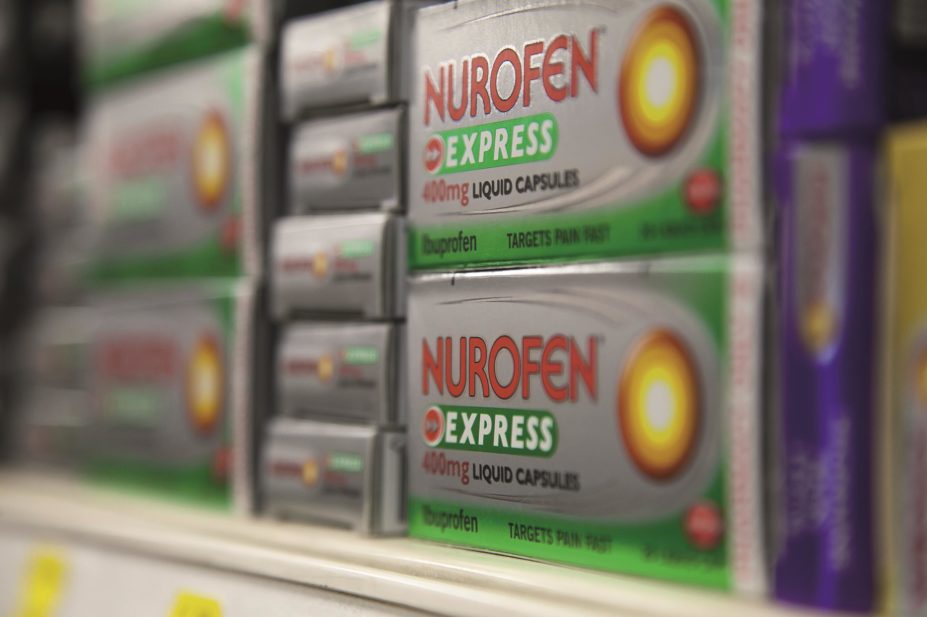
Newzulu / Alamy Stock Photo
Nurofen Express advertisements are being investigated by the Advertising Standards Authority (ASA) in the UK in response to complaints that they are misleading.
The case has been ongoing since February 2015 following 12 complaints about the television advertisements, the ASA confirmed on 15 December 2015.
The complainants say the advert is misleading because it claims the product gives faster headache relief than either paracetamol or ibuprofen and because it implies that the drug targets the head specifically.
Details of the case emerged at the same time as the manufacturer of over-the-counter Nurofen products was ordered to remove them from sale in Australia after being found guilty of misleading consumers.
The ruling by the Australian Federal Court applies to the range on sale there and includes Nurofen Back Pain, Nurofen Period Pain, Nurofen Migraine Pain and Nurofen Tension Headache.
The court ruled that Reckitt Benckiser (Australia) Pty Ltd. broke consumer law by claiming that the pain products were each formulated to treat a specific kind of pain when in fact all the products were identical.
All products in the range contain the same active ingredient — ibuprofen lysine 342mg. The products were also sold at almost double the cost of Nurofen’s standard ibuprofen products and its competitor’s general pain relief medicines, according to the Australian Competition and Consumer Commission (ACCC), which brought the action against the drug manufacturer.
“The ACCC took these proceedings because it was concerned that consumers may have purchased these products in the belief that they specifically treated a certain type of pain, based on the representations on the packaging, when this was not the case,” says ACCC chair Rod Sims.
Reckitt Benckiser admitted it had contravened consumer law and agreed to the court orders to publish correction notices on its website and in newspapers and to introduce a consumer protection compliance programme. It also has to pay the ACCC’s costs.
In a statement after the ruling, Reckitt Benckiser confirmed that the case only applies to the Australian products. “Nurofen products in the UK are not affected and continue to be available,” it said. “The ruling affects 5% of the Australian Nurofen range.”
The company maintains that the formulations used for its indication-specific packs, which contain ibuprofen lysine and sodium, are different from standard Nurofen tablets, and are formulated to be absorbed faster. “We are continuing to work with regulators in Australia to ensure Nurofen packaging continues to be fully aligned with all guidelines and requirements,” the company said.
Jayne Lawrence, chief scientist at the Royal Pharmaceutical Society, says the placebo effect also plays a part in improving pain relief. “The placebo effect is one reason why people may choose to buy a more expensive product even though it may be identical to cheaper versions,” she says.
The Proprietary Association of Great Britain (PAGB), which represents over-the-counter drug manufacturers, says targeted products promoted for specific symptoms can help the public choose the most appropriate product.
“While some products contain the same active ingredient, they may be formulated in a way that makes the product better suited for a particular sort of pain,” says John Smith, chief executive of the PAGB. “For example, headache sufferers might want to choose a medicine that is faster acting, as speed of treatment is particularly relevant for this condition. Back pain tends to be longer lasting and therefore best suited to a product that is designed to slowly release the active ingredient.”
A spokesperson for the ASA says its investigation is completely separate from the Australian case. “This is a complex case and there is a lot of evidence that we are assessing. We can’t say when we will reach a conclusion.”


